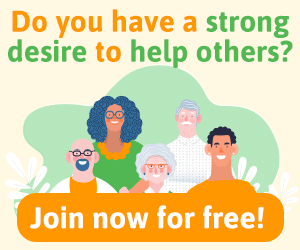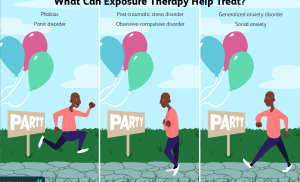Volunteering As Self-Care: Giving Back To Recharge
Are you feeling overwhelmed by the busyness of life? Seeking a way to recharge and find a sense of fulfillment? Look no further than volunteering as self-care. Engaging in acts of kindness not only benefits others but can also provide a much-needed boost to your own well-being. In this article, we will explore the numerous ways that giving back through volunteering can help you recharge, find purpose, and cultivate a positive mindset. So, grab a cup of tea, sit back, and discover the transformative power of self-care through volunteering.

The Benefits of Volunteering for Self-Care
Volunteering is not only a selfless act of giving back to others, but it also has numerous benefits for your own well-being. Engaging in volunteer work can have a positive impact on your mental health, emotional well-being, physical health, relationships, sense of purpose, and personal growth. By incorporating volunteering into your self-care routine, you can experience a multitude of advantages that contribute to your overall happiness and fulfillment.
Improving Mental Health
Volunteering has been shown to have a significant impact on mental health. By helping others, you provide a sense of purpose and fulfillment that can combat feelings of stress, anxiety, and even depression. The act of volunteering triggers the release of endorphins, which are natural mood-boosting chemicals in the brain. Additionally, focusing on the needs of others can shift your perspective, helping you gain a fresh outlook on your own challenges and reducing the tendency to ruminate on negative thoughts.
Enhancing Emotional Well-being
Engaging in volunteer work can enhance your emotional well-being by creating a sense of fulfillment and satisfaction. The act of giving back to others and making a positive impact can boost your self-esteem and self-worth. It can also foster empathy and compassion, as you develop a deeper understanding of the struggles faced by others. By volunteering, you not only improve the lives of those you serve but also cultivate a greater sense of gratitude and appreciation for your own blessings.
Boosting Physical Health
Volunteering also has physical health benefits. Many volunteer opportunities involve physical activity, whether it’s working in community gardens, participating in charity runs, or engaging in environmental conservation efforts. Regular physical activity can improve cardiovascular health, lower blood pressure, and reduce the risk of heart disease. Additionally, increased physical activity releases endorphins, which can further contribute to a sense of overall well-being.
Building Relationships and Social Support
One of the most significant benefits of volunteering is the opportunity to build relationships and social connections. When you volunteer, you surround yourself with like-minded individuals who share similar passions and values. These connections can lead to the formation of meaningful friendships and a sense of community. Volunteering provides a unique opportunity to meet people from diverse backgrounds, expanding your social network and fostering a sense of belonging.
Developing a Sense of Purpose and Meaning
Volunteering can help you develop a sense of purpose and meaning in your life. By contributing to a cause greater than yourself, you align your actions with your personal values and beliefs. This alignment can instill a sense of purpose and fulfillment, as you make a positive impact on the lives of others. Volunteering allows you to discover and develop your talents, giving you a sense of direction and clarity in your life.
Promoting Personal Growth and Self-Esteem
Engaging in volunteer work promotes personal growth and self-esteem. As you take on new challenges and responsibilities, you acquire new skills and experience that can enhance your confidence and self-worth. Volunteering can also provide opportunities for leadership and decision-making, allowing you to develop valuable abilities that transfer to other areas of your life. By pushing yourself outside of your comfort zone, you foster problem-solving and creativity skills, broadening your perspectives and cultural competence.
Finding the Right Volunteer Opportunity
In order to reap the full benefits of volunteering for self-care, it is crucial to find the right volunteer opportunity that aligns with your interests, availability, and skills. Consider the following factors when searching for the perfect volunteer opportunity:
Assessing Personal Interests and Passions
Start by reflecting on your personal interests and passions. What causes or issues resonate with you? Consider the areas where you can make the most meaningful impact and find fulfillment. Whether it’s working with children, supporting environmental causes, or helping the elderly, choose a volunteer opportunity that aligns with your passions.
Considering Time Commitments and Availability
Assess your available time and commitments. Determine how much time you can realistically dedicate to volunteering. Some volunteer opportunities require a significant time commitment, while others offer more flexibility. Consider whether you prefer short-term or long-term commitments and find an opportunity that fits your schedule.
Identifying Skills and Expertise
Identify your skills and expertise to find volunteer opportunities that allow you to make the most impact. Consider your professional or personal experiences and how they can be applied to a volunteer role. Whether you have teaching skills, organizational abilities, or creative talents, find a volunteer opportunity that allows you to utilize and develop these skills.
Researching Local Volunteer Opportunities
Start by researching local volunteer opportunities in your community. Many nonprofit organizations and community centers have ongoing volunteer programs that cater to various causes. Get in touch with these organizations, attend volunteer fairs, or explore volunteer databases to discover opportunities that match your interests and skills.
Exploring Virtual Volunteering Opportunities
If physical limitations or time constraints prevent you from engaging in traditional volunteering, consider virtual volunteering opportunities. Many organizations offer virtual volunteer positions that can be done remotely, allowing you to contribute from the comfort of your own home. From virtual mentorship programs to online advocacy and fundraising, there are numerous ways to make a difference even if you are unable to be physically present.
Types of Volunteer Work for Self-Care
There are countless types of volunteer work available, catering to a wide range of interests and causes. When choosing a volunteer opportunity, consider the following types of volunteer work that can contribute to your self-care routine:
Community Service
Community service involves participating in activities that benefit your local community. This can include volunteering at homeless shelters, food banks, schools, or community cleanup events. By directly supporting your community, you create a tangible impact and develop a greater appreciation for the place you call home.
Environmental Conservation
For those passionate about protecting the environment, participating in environmental conservation volunteer work allows you to contribute to the preservation of natural resources. This can involve activities such as planting trees, cleaning up parks and beaches, or educating others about sustainable practices.
Animal Welfare
Animal welfare volunteer work involves helping animals in need, whether it’s working at animal shelters, participating in wildlife rescue efforts, or advocating for animal rights. By caring for animals and ensuring their well-being, you can experience the joy of making a difference in their lives while improving your own mental and emotional health.
Supporting Health and Wellness
If you have an interest in health and wellness, consider volunteering in healthcare settings or organizations that support individuals with specific health needs. This can involve providing companionship to the elderly, assisting in hospitals or clinics, or promoting mental health awareness and support.
Education and Mentoring
For those passionate about education, volunteering as a tutor or mentor can be a fulfilling way to support others. By sharing your knowledge and skills, you can positively impact the lives of students or individuals seeking guidance, contributing to their personal and academic growth.
Disaster Relief
In times of natural disasters or emergencies, volunteering in disaster relief efforts can provide vital support to affected communities. This can involve providing immediate assistance, distributing supplies, or helping with long-term recovery efforts. By helping others during challenging times, you contribute to the strength and resilience of communities in need.
Arts and Culture
If you have a love for the arts, consider volunteering in arts and culture-related organizations or events. This can involve assisting in art therapy programs, supporting local museums or theaters, or organizing cultural events that celebrate diversity and creativity.
Sports and Recreation
For individuals passionate about sports and recreation, volunteer opportunities in this area provide the chance to promote physical health and inclusivity. This can involve coaching youth sports teams, organizing community fitness events, or assisting in adaptive sports programs for individuals with disabilities.
Incorporating Volunteering into Your Self-Care Routine
In order to fully experience the benefits of volunteering for self-care, it is important to incorporate it into your regular routine. Follow these tips to effectively integrate volunteering into your life:
Setting Clear Boundaries and Realistic Expectations
When incorporating volunteering into your self-care routine, it is crucial to set clear boundaries and realistic expectations. Assess your available time and energy, and ensure that you don’t overcommit yourself. Set reasonable limits to avoid burnout and make sure you have enough time for self-care activities.
Finding the Right Balance
Find the right balance between volunteering and other aspects of your life. Understand that self-care is not selfish, but necessary for your mental, emotional, and physical well-being. Prioritize your self-care activities while still dedicating meaningful time to your volunteer work.
Scheduling Regular Volunteering Time
Make volunteering a regular part of your schedule by setting aside dedicated time for it. Whether it’s a few hours each week or a monthly commitment, consistency is key. By incorporating volunteering into your routine, you ensure that you are consistently giving back and benefiting from the positive effects of your volunteer work.
Engaging in Activities That Bring Joy
Choose volunteer opportunities that align with your interests and bring you joy. By engaging in activities that you genuinely enjoy, volunteering becomes a source of fulfillment and rejuvenation. Whether it’s working with children, preserving the environment, or supporting a cause you are passionate about, find volunteer opportunities that bring you happiness and satisfaction.
Being Mindful and Present
When volunteering, practice mindfulness and be fully present in the moment. Pay attention to the needs of those you are serving and immerse yourself in the experience. By being mindful, you enhance the connection between your volunteer work and your own well-being, deepening the positive impact it has on your self-care routine.
Practicing Gratitude
Cultivate a sense of gratitude for the opportunity to volunteer and make a difference. Reflect on the positive aspects of your volunteering experience and the impact you are making in the lives of others. By practicing gratitude, you reinforce the positive emotions associated with your volunteer work and enhance your overall well-being.
Taking Care of Yourself
Lastly, remember to prioritize self-care while volunteering. Pay attention to your own needs and take care of your physical, mental, and emotional well-being. Get enough rest, engage in activities that recharge you, and seek support if needed. By taking care of yourself, you ensure that you can continue to give back and make a positive impact.

How Volunteering Improves Mental Health
Volunteering has been shown to have a profound impact on mental health, providing various benefits that contribute to overall well-being. The following are ways in which volunteering can positively affect mental health:
Reducing Stress and Anxiety
Engaging in volunteer work can help reduce stress and anxiety levels. The act of helping others and focusing on their needs can provide a sense of purpose and distraction from personal worries. Volunteering can also promote social connections and a support system, which can alleviate feelings of stress and isolation.
Combating Depression
Volunteering has been linked to a reduction in symptoms of depression. By providing a sense of purpose and structure, volunteering can counteract feelings of hopelessness and despair. The social interaction and meaningful connections formed through volunteering can also combat feelings of loneliness, which is often associated with depression.
Increasing Happiness and Life Satisfaction
Volunteering is known to increase happiness and life satisfaction. The act of giving back and making a positive impact on others’ lives can bring about a sense of fulfillment and joy. Volunteering can also improve one’s sense of self-worth and create a deeper sense of purpose and meaning in life.
Alleviating Feelings of Loneliness and Isolation
Feelings of loneliness and isolation can be alleviated through volunteering. Volunteering provides opportunities for social interaction and the formation of meaningful connections with others who share similar passions and values. By engaging in volunteer work, individuals can expand their social networks and develop a greater sense of belonging.
Boosting Cognitive Functioning
Volunteering has been shown to have cognitive benefits as well. The mental stimulation and engagement involved in volunteer work can enhance cognitive functioning. It can improve memory, attention, and problem-solving skills, contributing to overall brain health and functioning.
The Emotional Well-being Benefits of Volunteering
Volunteering can have a significant impact on emotional well-being, providing numerous benefits that contribute to overall happiness and fulfillment. The following are ways in which volunteering can enhance emotional well-being:
Creating a Sense of Fulfillment
Engaging in volunteer work often creates a sense of fulfillment and satisfaction. By helping others and making a positive impact on their lives, volunteers experience a deep sense of purpose and meaning. This fulfillment can lead to increased levels of happiness and overall emotional well-being.
Building Empathy and Compassion
Volunteering fosters the development of empathy and compassion. By interacting with individuals facing various challenges and struggles, volunteers gain a deeper understanding of the human experience. This increased empathy and compassion can enhance personal relationships and improve overall emotional well-being.
Enhancing Emotional Resilience
Volunteering can enhance emotional resilience, the ability to bounce back from adversity. By witnessing and supporting individuals who are facing difficult situations, volunteers develop a greater capacity for empathy, understanding, and resilience. This enhanced emotional resilience can benefit volunteers in their own lives when faced with challenges or setbacks.
Gaining Perspective and Gratitude
Volunteering provides an opportunity to gain perspective and gratitude. By witnessing the struggles and hardships faced by others, volunteers gain a new appreciation for their own blessings and circumstances. This perspective shift can foster a sense of gratitude, leading to increased levels of happiness and contentment.
Fostering a Sense of Belonging
Engaging in volunteer work fosters a sense of belonging and connection. Volunteers often become part of a community of individuals who share similar passions and values. This sense of belonging can combat feelings of loneliness and isolation, promoting overall emotional well-being.

Volunteering as a Physical Self-Care Practice
In addition to the mental and emotional benefits, volunteering also has physical health advantages that contribute to overall well-being. The following are ways in which volunteering can improve physical health:
Increasing Physical Activity
Many volunteer opportunities involve physical activity, such as working in community gardens, participating in charity runs, or engaging in environmental conservation efforts. By engaging in these activities, volunteers increase their physical activity levels, which contributes to improved cardiovascular health and overall fitness.
Improving Overall Health
Regular volunteering has been associated with improved overall health. Engaging in volunteer work creates a sense of purpose and fulfillment, which can positively impact various aspects of health. Volunteers often experience reduced stress levels, improved immune function, and lower rates of chronic diseases.
Lowering Blood Pressure and Risk of Heart Disease
Volunteering can contribute to lowered blood pressure and reduce the risk of heart disease. By engaging in physical activity and reducing stress levels, volunteers experience improved cardiovascular health. The positive social connections formed through volunteering also contribute to better heart health.
Boosting Immune Function
Volunteering has been linked to improved immune function. The act of helping others and experiencing a sense of purpose can boost the immune system’s ability to fight off infections and diseases. This strengthening of the immune response contributes to overall physical well-being.
Promoting Better Sleep
Volunteering can promote better sleep patterns. The sense of fulfillment and purpose experienced through volunteer work can lead to improved mental and emotional well-being, which in turn contributes to better sleep quality. Volunteers often report more restful sleep and a decreased incidence of sleep disorders.
The Role of Volunteer Work in Building Relationships
Volunteering offers a unique opportunity to build relationships and foster social connections, which are essential components of overall well-being. The following are ways in which volunteering can contribute to building relationships:
Expanding Social Networks
Volunteering provides a platform to expand social networks. By engaging in volunteer work, individuals connect with like-minded individuals who share similar passions and values. These connections can lead to the formation of meaningful friendships and a sense of community.
Creating Meaningful Connections
Volunteer work often involves teamwork and collaboration, creating opportunities to form meaningful connections with others. By working together towards a common goal, volunteers develop a deeper understanding and appreciation for one another. These connections often extend beyond the volunteer setting, leading to long-lasting friendships.
Finding Support and Understanding
Volunteering can provide a source of support and understanding. By engaging with individuals who are facing similar challenges and struggles, volunteers can find a sense of belonging and empathy. The shared experiences and connections formed through volunteering can provide a support system in times of need.
Strengthening Interpersonal Skills
Volunteer work helps strengthen interpersonal skills, which are essential for building and maintaining relationships. By engaging in teamwork, communication, and problem-solving, volunteers develop important interpersonal skills that transfer to other areas of life. These skills enhance their ability to foster meaningful relationships.
Developing a Sense of Belonging
Volunteering fosters a sense of belonging and community. By engaging with like-minded individuals, volunteers create a sense of connection and shared purpose. This sense of belonging contributes to overall well-being and provides a supportive environment for personal growth and development.

Developing a Sense of Purpose and Meaning Through Volunteering
Volunteering can provide a sense of purpose and meaning in life, which are vital aspects of well-being. The following are ways in which volunteering can contribute to developing a sense of purpose and meaning:
Contributing to a Greater Cause
By engaging in volunteer work, individuals contribute to a greater cause beyond themselves. The act of helping others and making a positive impact provides a sense of purpose and fulfillment. Volunteers often find meaning in knowing that their actions are making a difference in the lives of others.
Making a Positive Impact on Others
Volunteering allows individuals to see the tangible impact they have on the lives of others. By witnessing the positive transformation in the lives of those they serve, volunteers gain a sense of meaning and purpose. Knowing that their actions have the power to change lives provides a deep sense of fulfillment.
Aligning Actions with Personal Values
Volunteering provides an opportunity to align actions with personal values and beliefs. By choosing to support causes that resonate with their values, individuals create a sense of congruence between their actions and their core beliefs. This alignment contributes to a deeper sense of purpose and authenticity.
Discovering and Developing Talents
Volunteering allows individuals to discover and develop their talents and skills. By engaging in volunteer work, individuals often find new interests and passions or refine existing talents. This self-discovery and personal growth add to their sense of purpose and meaning, as they uncover new aspects of themselves.
Finding Meaning in Life
Volunteering can provide individuals with a profound sense of meaning in life. By engaging in meaningful work and making a positive impact, volunteers find purpose in their actions. The act of helping others and contributing to the well-being of a community or cause can bring a deep sense of fulfillment and meaning.
Promoting Personal Growth and Self-Esteem Through Volunteering
Volunteering is a powerful tool for personal growth and the enhancement of self-esteem. The following are ways in which volunteering can promote personal growth and boost self-esteem:
Building Confidence and Self-Worth
Engaging in volunteer work can build confidence and boost self-worth. By taking on new challenges and responsibilities, volunteers develop a sense of competence and mastery. Accomplishing tasks and making a positive impact on others’ lives enhances their self-esteem and self-worth.
Acquiring New Skills and Experience
Volunteering provides an opportunity to acquire new skills and experience. By engaging in volunteer work, individuals learn and develop transferable skills, such as leadership, communication, problem-solving, and teamwork. These new skills broaden their horizons and enhance their personal and professional growth.
Gaining Leadership and Decision-Making Abilities
Volunteering often involves opportunities for leadership and decision-making. By taking on leadership roles or actively contributing to decision-making processes, individuals develop their leadership and decision-making abilities. This growth in skills and abilities contributes to their personal and professional development.
Enhancing Problem-Solving and Creativity
Volunteering can enhance problem-solving and creativity skills. By engaging with diverse individuals and navigating various challenges, volunteers learn to think critically and creatively. This enhances their problem-solving abilities and fosters innovation, impacting their personal growth and development.
Broadening Perspectives and Cultural Competence
Volunteering exposes individuals to different perspectives and cultures. By engaging with individuals from diverse backgrounds, volunteers broaden their own perspectives and develop cultural competence. This increased understanding and tolerance contribute to personal growth and a deeper appreciation for diversity.
Incorporating volunteering into your self-care routine can have a transformative effect on your overall well-being. By helping others and contributing to your community, you not only make a positive impact on the lives of others but also experience a multitude of benefits for yourself. From improved mental health and emotional well-being to enhanced physical health and personal growth, volunteering offers a wide range of advantages that contribute to your overall happiness and fulfillment. So, find the right volunteer opportunity that aligns with your interests and passions, and start reaping the rewards of giving back to recharge yourself.


















